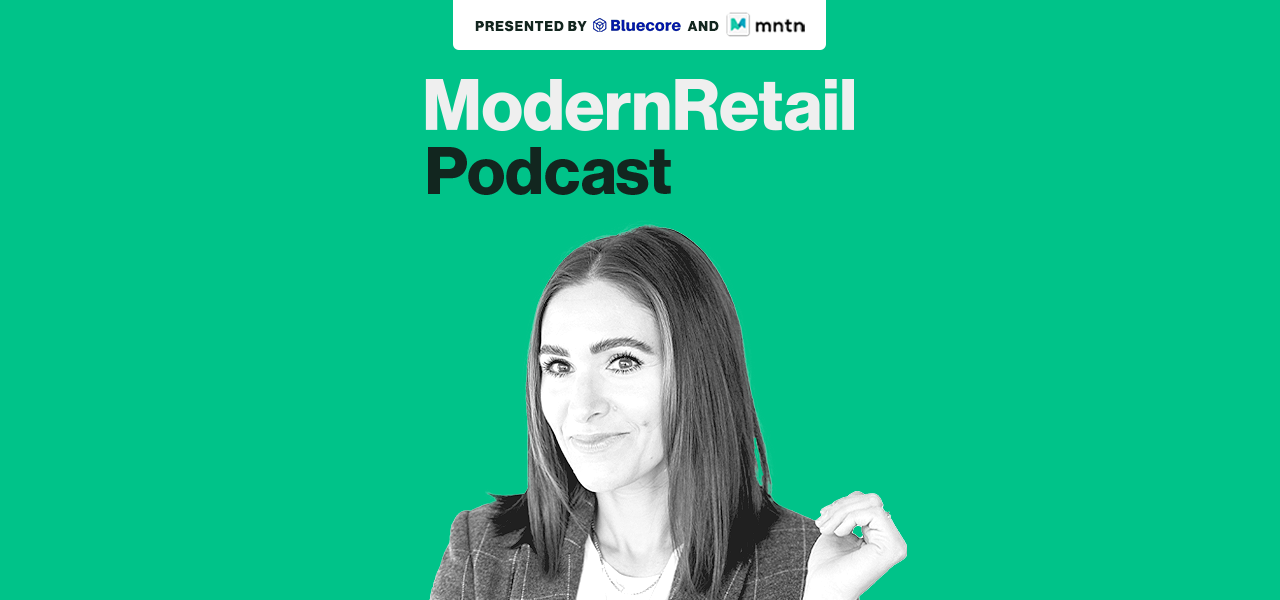Goodbuy co-founder Cara Oppenheimer on building a small business platform to rival mega-retailers

Subscribe: Apple Podcasts • Spotify
Goodbuy is trying to be the anti-mega-retailer.
Goodbuy, launched in 2021, is a startup that gives shoppers small-business alternatives to bigger retailer websites. The company offers a browser extension that, when launched on a site like Amazon and Walmart, highlights other smaller brands that offer similar products. Goodbuy also launched a mobile shopping site that lets users search for brands based on different criteria such as product type, region or founder demographic.
“I wanted to create a really efficient way to have folks be able to shop consciously,” said co-founder Cara Oppenheimer. She joined this week’s Modern Retail Podcast and spoke about the idea behind Goodbuy and its plans for the future.
Over the last year, Goodbuy has amassed a brand list of 180,000 companies it links out to, 40,000 user profiles and has helped facilitate nearly $2 million in sales. Now, the focus is on growing both the user and partner brand base — while finding new ways to monetize. That includes paid brand offerings, as well as growing affiliate business.
In its first year of business, much of Goodbuy’s focus has been around proven out the concept. While the future business model will be based on affiliate commerce — brands will pay Goodbuy a cut of the sale if a shopper used the platform to discover a product — Oppenheimer wanted to get more people to try the service out before she started charging a fee. So for last year, Goodbuy didn’t charge a fee and instead focused on building out its list of brands and customer base.
With that, she and her co-founder built a tech stack that would automatically onboard small brands into its search capabilities and then categorize them by different attributes. That is, a Goodbuy user could search for women-owned brands or companies that pledge to be more sustainable.
Ad position: web_incontent_pos1
Now, with tens of thousands of shoppers and growing brand attention, Oppenheimer plans on implementing the affiliate program this year.
The hope is to create an online shopping experience that can rival Amazon, while still focusing on small businesses. But that will require scale.
“A lot of our priorities are around onboarding more businesses at scale,” said Oppenheimer, “so there’s more opportunity for our consumers.”
Here are a few highlights from the conversation, which have been lightly edited for clarity.
The thesis behind Goodbuy
“The idea is to make conscious shopping super easy, and intercept all of the ways we’ve trained ourselves to shop. We go right to Amazon — 62% of all online shopping starts on Amazon. They’re the Google for shopping; 70% of all online spending happens with 15 mega-retailers. So instead of playing [like] another DTC brand and [saying], ‘Come to my marketplace,’ we create tools that intersect the existing behavior to direct people to these incredible small businesses. So they’re no longer on page 10 of your shopping results and your search results.”
Ad position: web_incontent_pos2
How Goodbuy onboarded its first businesses
“When we launched Goodbuy, we believed we needed scale. You can’t have a browser extension show up with the same three results over and over if you’re trying to show up on top of Amazon. And so we thought, okay, we’re never going to be able to acquire 40,000 businesses at scale rapidly at a low cost… So we built a series of really smart tools that use some third-party data but, most importantly, the proprietary tools that we built. [This] helped us identify businesses at various revenue targets — from Shopify and other platforms — at various scales across various categories. And then what we did was we built a unique tool that gave us a 99% accurate identification system for the 16 different business values and owner identities that we defined as important to the broad consumer.”
Why brands must use their own packaging
“So the current onboarding, through Shopify, is a four-minute four-step process for an SMB. They answer like four questions, essentially saying the scale they are; they identify their owner identities and business values, should they choose to — it’s not required. And then they identify the last important thing, which is that they don’t fulfill products bought on their site directly in mega-retailer packaging. So we can’t have a small business [send customers] an Amazon package. That’s a really important aspect of our business. The experience that a customer has when moving through Goodbuy is one of joy and connectedness to small businesses. So that’s the most important criteria; they can sell on Amazon, separately. But when someone buys directly from their site, through us, they can’t receive that package there. And so that’s really important.”

